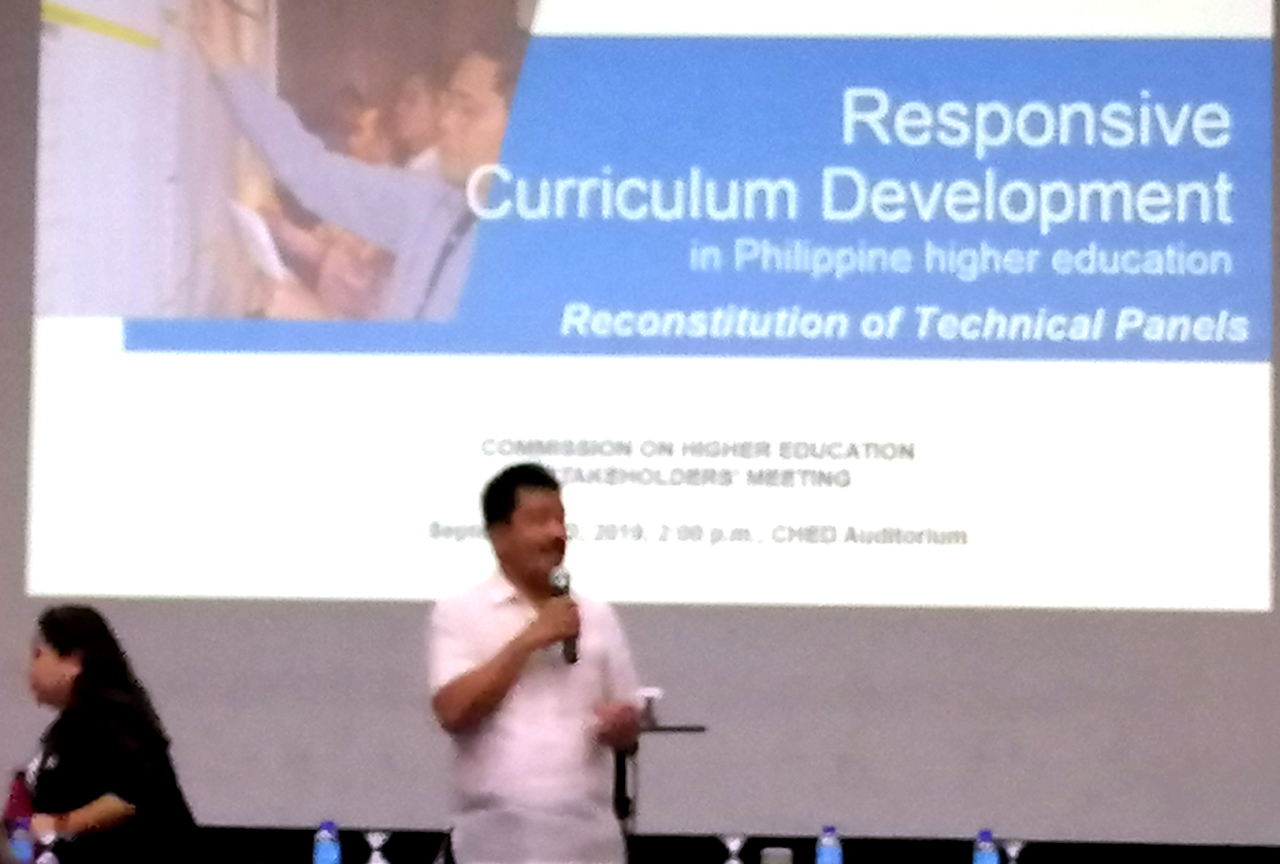
 As a representative of the Philippine construction industry, the Association of Carriers and Equipment Lessors (ACEL) was invited by the Commission on Higher Education (CHED) to the Stakeholders Forum on the Reconstitution of CHED Technical Panels that was held at the commission’s main office in Diliman, Quezon City on September 23, 2019.
As a representative of the Philippine construction industry, the Association of Carriers and Equipment Lessors (ACEL) was invited by the Commission on Higher Education (CHED) to the Stakeholders Forum on the Reconstitution of CHED Technical Panels that was held at the commission’s main office in Diliman, Quezon City on September 23, 2019.
CHED is the government agency that supervises both public and private higher education institutions as well as degree-granting programs in all post-secondary educational institutions in the country. It organized the forum so it could present to stakeholders in relevant industries its plans for developing a post-high school curriculum that is responsive to current industry demands which call for, among others, the reconstitution of the technical panels for the various disciplines and program areas under it. Toward this end, CHED also wanted to solicit the stakeholders’ assistance in identifying technical evaluators and experts who will make up the reconstituted technical panels.
At the forum, Dr. J. Prospero E, De Vera III, CHED chairman, discussed the four-point rationale for reconstituting the technical panels. These are:
- To develop a roadmap for academic program which are responsive to the demands of the 21st century and Fourth Industrial Revolution.
- To promote outcomes-based education and improve the competitiveness and employability of the Filipino workforce.
- To ensure accountability, transparency and policy-making, and in program and institutional monitoring and evaluation.
- To institutionalize the representation of experts from the government, academe and industry im education policy-making.
Laurice S.D. Ambrosio, ACEL executive officer, attended the forum whose objectives were warmly welcomed by the Association’s board. “Since its establishment in May 1966, ACEL has always been a strong advocate for the world-class training of the Philippine construction industry workforce,” Eduardo P. Trinidad, the Association president, said. “We believe that CHED has the right direction in updating the curriculum in the Philippines.”








